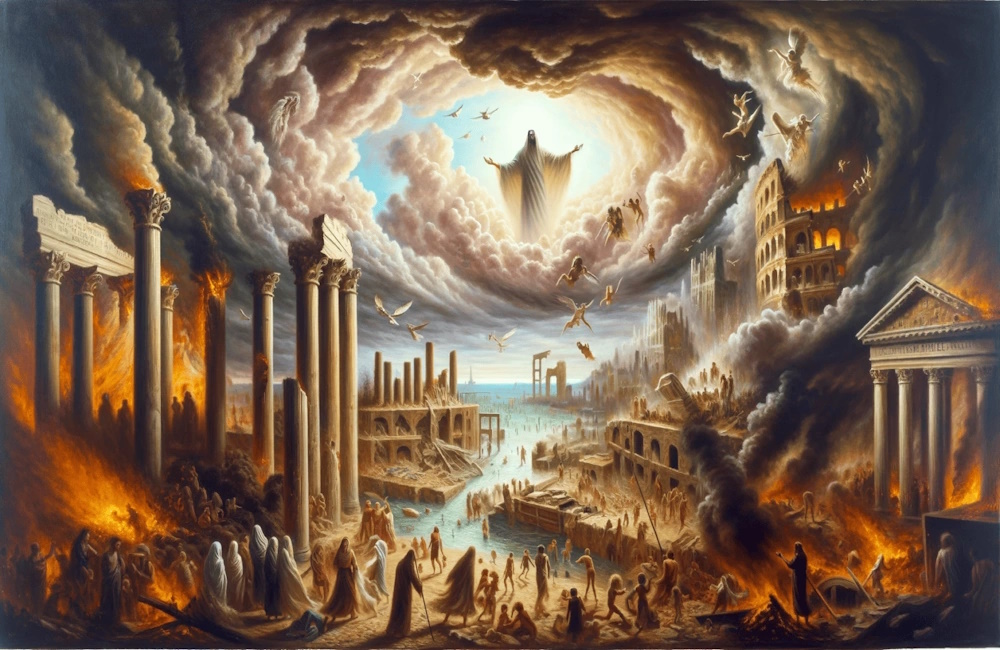The question of why Jesus, as God, did not know the day or the hour of His return is a complex theological issue that has prompted much discussion and interpretation among Christians. This question arises from Jesus’ statement in the Gospel of Matthew:
“But about that day or hour no one knows, not even the angels in heaven, nor the Son, but only the Father.” (Matthew 24:36, NIV)
Here are several interpretations that help to explain this mystery:
The Hypostatic Union
Christian theology explains that Jesus is both fully God and fully human, a concept known as the hypostatic union. This means Jesus has two natures: His divine nature, in which He is omniscient and knows all things, and His human nature, in which He experienced human limitations, such as fatigue, hunger, and limited knowledge. When Jesus stated that He did not know the day or the hour of His return, He was likely speaking from His human nature, which did not possess the full knowledge of His divine nature. Thus, His divine nature remained omniscient, but He voluntarily chose not to access certain divine attributes while on earth.
Kenosis Theory
The Kenosis theory, derived from the Greek word “kenosis” meaning “emptying,” is based on Philippians 2:6-7, which describes how Jesus, despite being in nature God, did not consider equality with God something to be used for His own advantage but instead emptied Himself by taking the form of a servant and becoming human. According to this theory, Jesus voluntarily gave up some aspects of His divine knowledge and power during His earthly life. This self-limitation was temporary, allowing Jesus to fully experience humanity by not exercising all the powers and knowledge inherent in His divine nature.
Role of the Trinity in the Economy of Salvation
The Trinity in Christian theology refers to the Father, the Son (Jesus), and the Holy Spirit as three distinct persons with one essence, each having a specific role in the plan of salvation. The Father is often associated with planning and initiating salvation, including knowing the times and seasons. The Son is focused on the incarnation, death, and resurrection to redeem humanity. The Holy Spirit applies the work of salvation to believers and empowers the church. When Jesus says that only the Father knows the day or hour, it reflects the distinct roles within the Trinity, where the Son, though fully God, submits to the Father’s authority.
Accommodation to Human Understanding
Another interpretation is that Jesus was adapting His message to the understanding of His disciples. During His time on earth, Jesus often communicated in ways that were accessible to the people of His culture and era. By stating that even He did not know the day or hour, Jesus emphasized humility and submission to the Father’s authority, helping His disciples understand that, in His earthly role, He was operating under the Father’s will.
Mystery of the Incarnation
The Incarnation—God becoming human—is ultimately a profound mystery beyond complete human understanding. The relationship between Jesus’ divine and human natures involves aspects that are beyond our comprehension. This includes how Jesus, being fully God, could genuinely state that He did not know the specific timing of His return.
Conclusion
Jesus’ statement about not knowing the day or the hour of His return can be understood through various theological perspectives: the hypostatic union, the kenosis theory, the distinct roles within the Trinity, His accommodation to human understanding, or the mystery of the Incarnation. Each perspective provides insight into how Jesus, despite being fully God, could truthfully declare that He did not know the exact time of His return.
